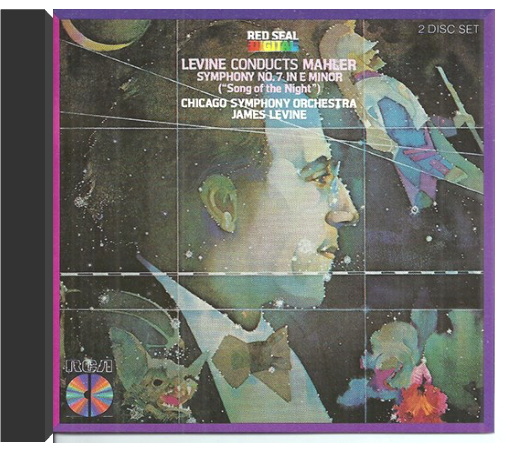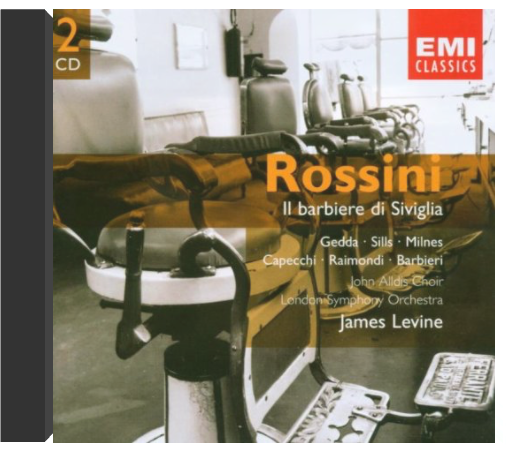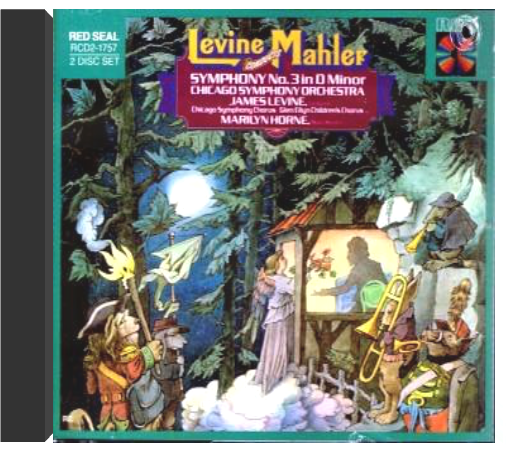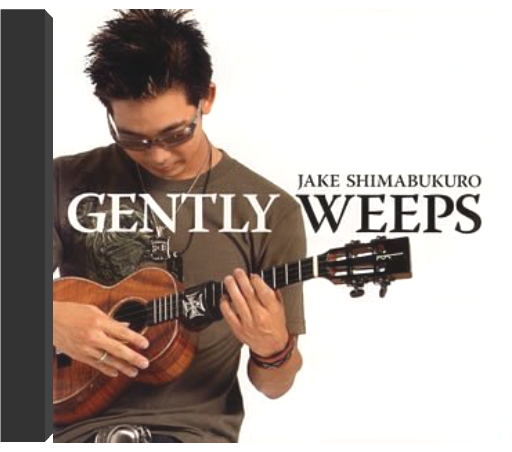 Gently WeepsJake Shimabukuro Gently WeepsJake Shimabukuro You'll forget all the Tiny Tim, Don Ho, and Hawaiian-music jokes about the ukulele when you hear Gently Weeps, which leaves behind the Roaring Twenties strum and plinky-dink sound of most such music. Jake Shimabukuro sets the tone with the lead-off track from which he takes the album's title, George Harrison's "While My Guitar Gently Weeps," unfolding the vulnerable undertow of Harrison's epic lament. A string of covers follows, as Shimabukuro touches the serene with Schubert's "Ave Maria," evokes a Japanese koto on a Zen-like version of "Sakura," and turns "The Star-Spangled Banner" into a lament. But Shimabukuro's original tunes are just as full of plucked nuance, especially "Heartbeat Dragon," where he uses a slight delay to create a quietly joyful Celtic air. However, don't think it's all wistful melancholy. Shimabukuro whips it out on original tracks like "Let's Dance," alternating hard rhythmic chops with flamenco-like strums. His take on Erroll Garner's "Misty" is a little jive, though I'm sure the hot jazz middle-section pumps the crowds up. Chick Corea's "Spain" fares much better and still scores high on the flash quotient. You just can't keep a fret-burner down, even when his fretboard is toy-sized. You can't keep the Hawaiian out either. Its gentle sway turns up on the sweetly laconic "Angel." A few bonus tracks of generic fusion at the end detract from the solo purity and intimate mood that Shimabukuro creates, but Gently Weeps is a joy until then. —John Diliberto 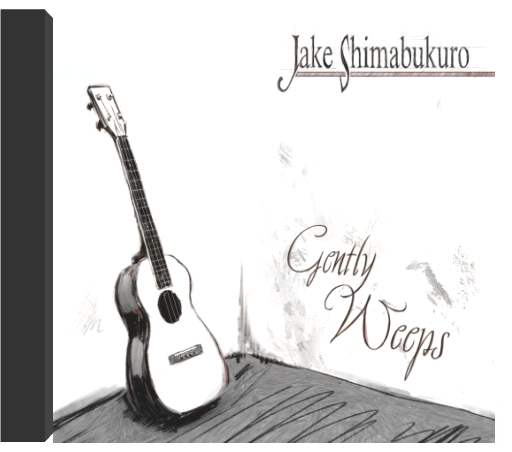 Gently WeepsJake Shimabukuro Gently WeepsJake Shimabukuro You'll forget all the Tiny Tim, Don Ho, and Hawaiian-music jokes about the ukulele when you hear Gently Weeps, which leaves behind the Roaring Twenties strum and plinky-dink sound of most such music. Jake Shimabukuro sets the tone with the lead-off track from which he takes the album's title, George Harrison's "While My Guitar Gently Weeps," unfolding the vulnerable undertow of Harrison's epic lament. A string of covers follows, as Shimabukuro touches the serene with Schubert's "Ave Maria," evokes a Japanese koto on a Zen-like version of "Sakura," and turns "The Star-Spangled Banner" into a lament. But Shimabukuro's original tunes are just as full of plucked nuance, especially "Heartbeat Dragon," where he uses a slight delay to create a quietly joyful Celtic air. However, don't think it's all wistful melancholy. Shimabukuro whips it out on original tracks like "Let's Dance," alternating hard rhythmic chops with flamenco-like strums. His take on Erroll Garner's "Misty" is a little jive, though I'm sure the hot jazz middle-section pumps the crowds up. Chick Corea's "Spain" fares much better and still scores high on the flash quotient. You just can't keep a fret-burner down, even when his fretboard is toy-sized. You can't keep the Hawaiian out either. Its gentle sway turns up on the sweetly laconic "Angel." A few bonus tracks of generic fusion at the end detract from the solo purity and intimate mood that Shimabukuro creates, but Gently Weeps is a joy until then. —John Diliberto 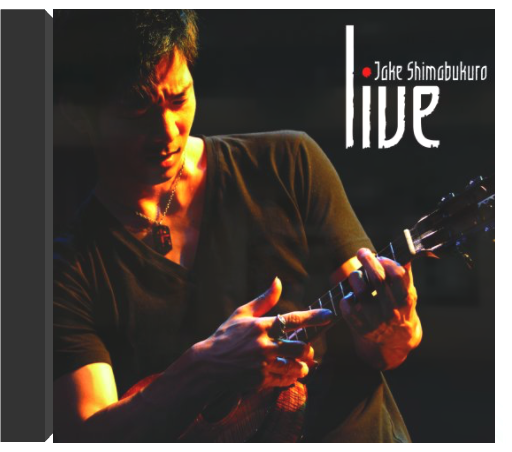 LiveJake Shimabukuro LiveJake Shimabukuro Ukulele master Jake Shimabukuro has taken the four-string, two-octave instrument to places no one has gone before, performing awesome music that ranges from Jazz, Blues and Rock to Bluegrass, Classical and Folk. His live concerts are an out-of-the-box blend of stunning virtuosity, deep musicality and a natural entertainer's flair. Jake now has his own record label, and tours extensively in the U.S. and Japan. He has completely rewritten the book on the possibilities of the ukulele — and is adding new chapters with every CD he records. 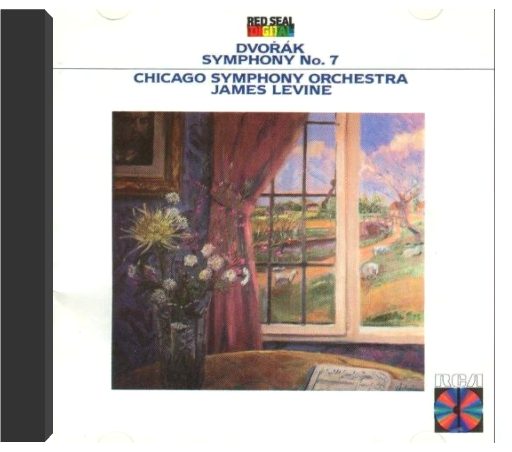 Dvorak: Symphony No 7 ~Chicago Symphony Orchestra James LevineJames Levine Dvorak: Symphony No 7 ~Chicago Symphony Orchestra James LevineJames Levine Symphony No.7 in D Minor, Op. 70: 1. Allegro maestoso 2. Poco Adagio 3. Scherzo: Vivace 4. Allegro 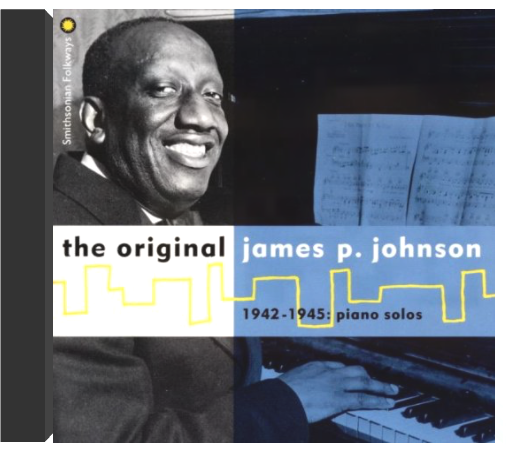 1942-45James P Johnson 1942-45James P Johnson Seventy-four minutes of solo piano from the father of Harlem stride piano. Includes eight previously unreleased tracks, including Yamekraw and Jazzamine Concerto. 20 vibrant performances, including Joplin and Handy, a Gershwin hit, and Johnson's own compositions-1917 Classic rags, a 1923 show tune, newly discovered blues improvisations, and three of his pioneering "third stream" symphonic works. 28-page booklet contains wonderful reproductions of the original LP covers, historical and biographical annotation on the period, the artist, and the songs. Reissued from Folkways 2850. "It was me, or maybe Fats, who say down to warm up the piano. After that, James took over. Then you got real invention-magic, sheer magic." - Duke Ellington 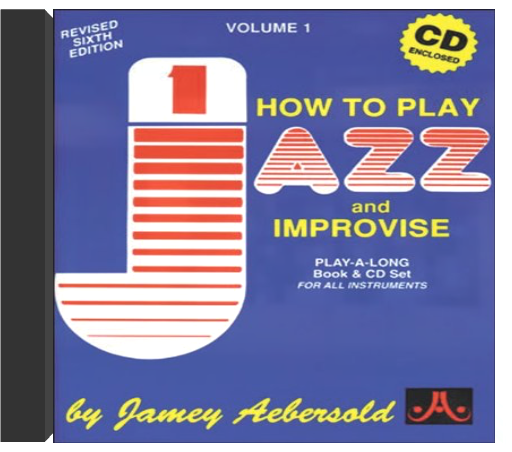 Vol. 1, How To Play Jazz & ImproviseJamey Aebersold Play-A-Long Series Vol. 1, How To Play Jazz & ImproviseJamey Aebersold Play-A-Long Series Beginning/Intermediate. Easy to understand and inspiring for all musicians wishing to explore the secrets of jazz improv. CD includes blues in Bb and F, four dorian minor tracks, four-measure cadences, cycle of dominants, 24-measure song, II/V7 in all keys. Book includes transposed parts for all instruments. The CD includes Jamey playing exercises from the book. Hear the master clinician show you exactly how it's done! 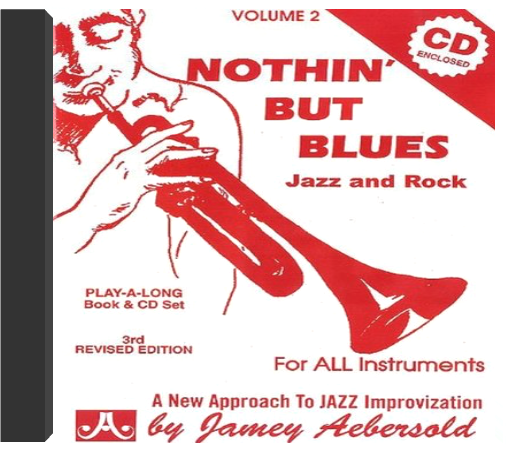 Vol. 2, Nothin' But Blues: Jazz And RockJamey Aebersold Play-A-Long Series Vol. 2, Nothin' But Blues: Jazz And RockJamey Aebersold Play-A-Long Series Beginning/Intermediate. The blues have contained the very essence of the jazz sound since the 1920s. A player who masters the sound and feel of the blues will play other jazz tunes in a manner that will inspire the listener. Contains 11 different blues melodies and is a natural follow-up to Volume 1 or Volume 21. Tempos are not fast. Presented in various keys with a variety of moods from slow to rock. Chords and scales are written in the staff for each track. 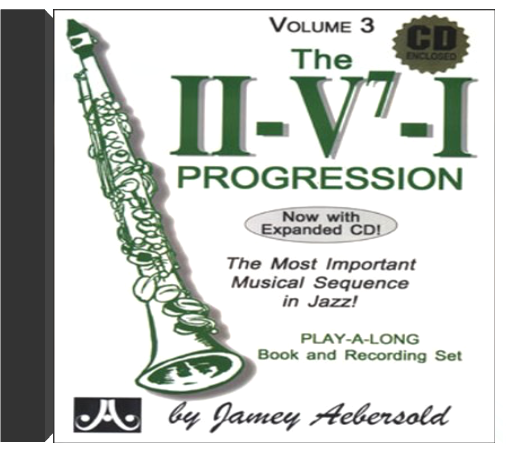 Vol. 3, The II/V7/I Progression: The Most Important Musical Sequence in JazzJamey Aebersold Play-A-Long Series Vol. 3, The II/V7/I Progression: The Most Important Musical Sequence in JazzJamey Aebersold Play-A-Long Series Beginning/Intermediate. The most important musical sequence in modern jazz! Contains all the needed scales and chords to each CD track and all are written in the staff. Contains 120 written patterns (transposed for all instruments) and 3 full pages of piano voicings that correspond to the CD. Contains a Scale Syllabus which allows you to find and use various substitute scales, just like professional musicians. CD contains 4 tracks of Jamey playing exercises in a 'call and response' fashion over an extended ii/V7/I progression that stays in one key at a comfortable tempo. Allows you to practice major, minor, dom. 7th, diminshed, whole tone, half-diminished, Lydian and dim. whole tone scales and chords. 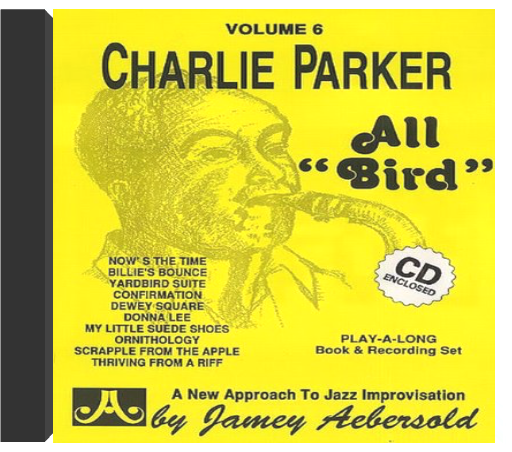 Vol. 6, Charlie Parker - All BirdJamey Aebersold Play-A-Long Series Vol. 6, Charlie Parker - All BirdJamey Aebersold Play-A-Long Series Intermediate/advanced level. This set contains the essence of modern music and is considered by most musicians to be some of the most important music of this century. Bebop is the music of the future! Ten Charlie Parker songs that truly represent the Bebop Era. This is truly a bebop rhythm section and they make the songs sing! This is a tremendous way to learn ten songs by the master musician, Charlie Parker. The songs have all become well known jazz standards that are essential for every jazz player to know. There are blues, "Rhythm" changes, alternating latin/swing, fast, and standard 32 bar songs in this outstanding collection. Learn from the master! |
 Made with Delicious Library
Made with Delicious Library

